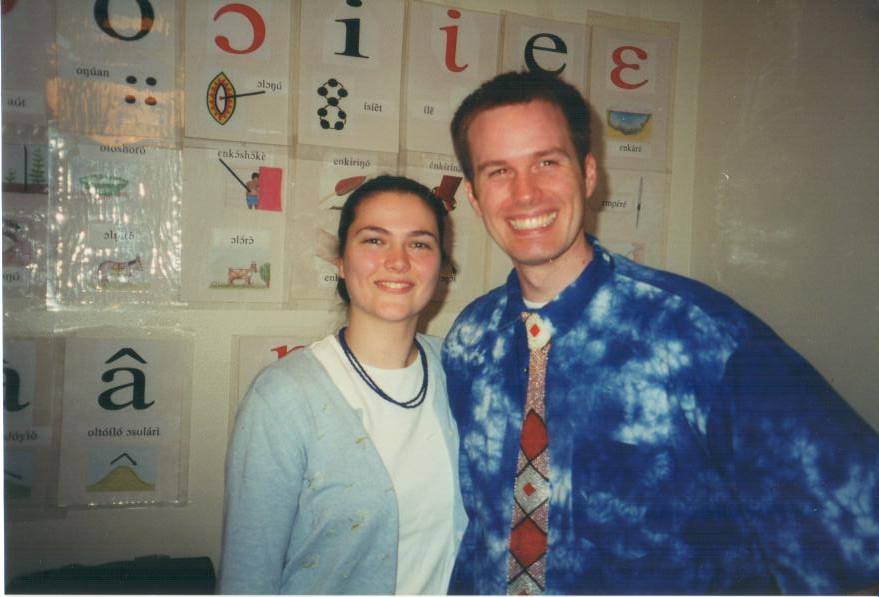
I’m not sure if missionary construction is more or less well known than missionary linguistics, but they are likely both a bit of a mashup for most people. I took this picture on my way home last week (stuck in holiday traffic, plenty of time to get the shot…) as one of a series of vehicular graveyards I’ve seen across the decades almost everywhere I go in Africa. Typically, it makes me think of how things fall apart here, and how little people probably expected this outcome to whatever they started out doing.
But today I’m reading one of my favorite missionary biographies, “To the Golden Shore”, by Courtney Anderson, on Adoniram Judson. I identify with him in a number of ways. The call to pioneer. Depression. Fruit and very painful circumstances almost constantly mixed. Bible translation.
It was this last that struck me today. This was the passage, presumably from one of his letters:
I sometimes feel alarmed [he reported] like a person who sees a mighty engine beginning to move, over which he knows he has no control. Our house is frequently crowded with company; but I am obliged to leave them to Moung En, one of the best of assistants, in order to get time for the translation. Is this right? Happy is the missionary who goes to a country where the Bible is translated to his hand. (pp398-9)
Perhaps the most important sentence in this section is “Is this right?” How can a missionary set aside talking to potential converts, to work on a book maybe no one will ever read? This must strike the conscience, and it must be dealt with.
The correct answer, I think, has to do with the relationships between longer term and shorter term strategic priorities. What can I do today that will make tomorrow better in some way? To just push off people is unconscionable, but so is continuing to labor day to day with no effort to get the scriptures to those who are (or even may be) converted. So Adoniram made the tough (and I think open to criticism) choice of delegating daily evangelism for the sake of the future growth and health of the church.
For me, there are two problems with this. First of all, I’m working another step removed. I’m not working so that a single people group will have the scriptures some day. I’m working on systems, and training and raising up workers, so that all of central Africa will have scriptures that speak with power. So it’s an even longer term investment than daily translation for a single people group.
But the other problem is the message of the vehicular graveyards. Who ever built (or bought, shipped, maintained, etc) a car so it would decorate some corner of the forest as it decomposed? I even saw a rusting carcass of a printing press once. Certainly that was bought and shipped there with the idea that it would help the missionary enterprise, not that it would just take oxygen out of the air.
So what will become of my work? I know nothing lasts in this world, but as I consider longer term strategic priorities, I must consider the possibility that I shoot so far out, that nothing comes of it before it starts decomposing. My time in DRCongo felt a bit like this; I planned for ten years, and prepared and built tools with that horizon in mind, but they weren’t used very much when we left only four years later.
So I try to constantly mix planning horizons. I feel the pull Adoniram described, to work for future missionaries, so I must set aside time for that. Added to this is the repeated realization that I know no one with the vision or capability to do what I’m doing now (not bragging, just reality; this is a niche work).
But Kim and I also sing in the church choir most weeks, and I lead several of the men of the church in Bible study most Saturdays. These are each a different horizon (making worship happen this week and growing up future leaders), but they both address the question of the people right here in front of me.
Then there’s the team that’s actively translating the scriptures, without understanding the tone writing system developed for them some fifty years ago. Has the language’s tone system changed? Probably. Has tone and writing system theory changed in that time? Definitely. Can I help them get back on track? I hope so.
Then there are A→Z+T users, present and future. I’ve been doing a lot of prep work for a tone workshop in the spring, which involves getting people up to speed with A→Z+T and evaluating their trained for the workshop. During this time, I’ve gotten to interact (face to face, by email, and through zoom) with people at different levels of competence and preparation, so I’ve gotten a broader vision for what A→Z+T’s user base will most likely look like.
Sometimes the user question is addressing specific issues, other times it’s fixing things in a more principled way, to avoid future issues. But I’m also working on a workshop presentation and book chapter to help potential users get a vision for what is now possible.
So it feels like running a sprint, a 5k, and a marathon, all at the same time (not that I’ve ever run a marathon, but I imagine…)
But it gives me courage that I’m not the first one to confront these questions, even if some of the details are new. Adoniram didn’t have Python, Autosegmental theory, or object oriented programming (though he did have snakes, elephants and tigers), but he did know the difficult task of prioritizing the needs in front of him today, and what most be done (today) to prepare for tomorrow.
And when I think of Adoniram’s first ten years of missionary service, including a death prison, the loss of his first wife and several children, along with any hope that his translation work would be preserved through the Anglo-Burman war, I’m encouraged to know that God did preserve that translation work, though a series of improbable coincidences. And he ultimately built his church in Myanmar on it, with generations of Christians using that translation to great effect.
So apparently (he comes to realize, again) God does know what he’s doing, even if His planning horizons are even longer and more complex than we can imagine. So please join me in prayer, that the One worshipped by the magi would lend me some of His wisdom in these days, as I sort through what to do when, and prioritize appropriately long term strategies that will produce fruit that will last.

